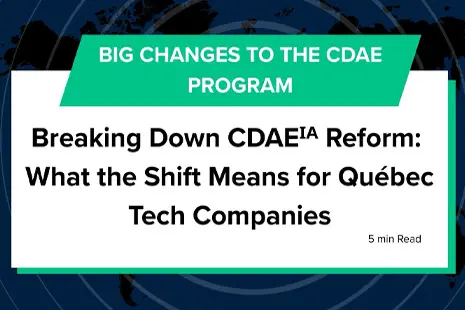The FDIC announced on Sunday that Silicon Valley Bank (SVB) customers will have access to all of their deposits—even if they exceed the FDIC’s traditional $250,000 insurance limit—beginning Monday, March 13.
The news comes as the FDIC established two new bridge banks to support customers of both SVB and Signature Bank, the ladder of which was shuttered and taken into FDIC receivership on Sunday, March 12, to stem what the government characterizes as “a systemic risk” to the U.S. banking system.
While we’ll unpack the Signature Bank scenario separately, there are important steps for SVB customers and technology startups in general as the dust continues to settle on the evolving situation.
What options do SVB and Signature Bank customers have now?
The most pressing concern of many business owners directly impacted by the bank closures was making payroll. As part of the receivership, SVB assets were effectively frozen on Friday with the FDIC facing a Monday, 9:30am ET deadline to advise customers on next steps.
Fortunately, the FDIC wasted no time in offering guidance on Sunday, assuring bank customers that the government will backstop all depositors. This will come at no expense to taxpayers, as funds will come from the FDIC’s Deposit Insurance Fund (DIF), which is currently valued at over $100 billion.
The FDIC went a step further to assuage any fears about a larger market collapse by offering additional funding to other banks that may be impacted by the fallout as former SVB customers seek new banking partners.
What does this mean for founders?
The biggest takeaway for founders directly affected by this situation is that while teams will definitely have access to all of their funds that were tied up in SVB and Signature ahead of their receiverships, timelines for dispersal are still in flux.
And while the FDIC has gone to great lengths to ensure their communicating as much information as they can at pace, there are still a lot of unknowns, including what firms will ultimately buy each bank’s remaining assets, and the implications from there.
Founders obviously can’t sit around and wait for guidance here, and may need to tap into short-term liquidity mechanisms to ensure they can keep their businesses operational throughout the uncertainty.
Resources for short-term cashflow
For SVB customers who are still concerned about accessing their payroll funds, there are additional short- and long-term options.
- Capchase is offering emergency payroll financing specifically for startups affected by the SVB closure. Companies can access 20% to 30% of their deposits in financing with a 30-60 day short-term liquidity product. To qualify, customers impacted must fill out this form. If any questions, you can reach out to Capchase directly maria@capchase.com.
- Swoop is available to support Boast clients with any U.S. government receivable as well, including R&D tax credits. This includes any short-term financing, cash flow-based financing or any type of asset-based financing. Book time with Swoop’s Senior Funding Manager Bhyran Sathyananthan to discuss options and strategies.
What should Canadian founders know and do next?
As we mentioned in our previous coverage on the SVB events, the institution didn’t have a formal banking practice established in Canada before it was taken into FDIC receivership. Even still, many Canadian businesses had U.S. accounts with SVB, and those holders need to be sure they’re doing the following:
- Contact the bank immediately: Understand where your funds are and how soon you can transfer them out of impacted accounts.
- Diversify banking relationships: At home and abroad, leverage more than one institution to avoid a total freeze of assets.
- Seek alternative funding sources: Lines of credit, factoring or even crowdfunding can help teams access capital when accounts are frozen.
- Communicate with employees: As soon as banking issues threaten to impact payroll or liquidity, founders must let employees know to minimize panic and additional fallout.
What about Sweep accounts?
There is some good news for SVB customers who took advantage of Sweep accounts, as these deposits are transferred into external investments accounts. Traditionally in these scenarios, a third party automatically transfers amounts above or below a pre-defined threshold into a higher interest-earning investment option at the close of each business day (ala a money market fund).
By their very nature, funds are transferred to a third-party, which excludes these transactions from appearing on SVB’s balance sheet. Still, as of the latest FDIC communique, it remains to be seen when SVB customers will gain full access to withdraw these funds, much like the rest of the assets tied up with SVB.
Now, about that Signature Bank closure…
While SVB had been a major player backing tech startups for almost 4 decades, Signature Bank had a similar cache among cryptocurrency and blockchain, characterized as one of Wall Street’s most crypto-friendly lenders over the past half decade.
Last year, Signature’s executive team announced that the bank would offload billions of dollars worth of deposits tied to the crypto sector as overall market attitudes toward blockchain waned. The bank had total assets of roughly $110 billion and total deposits of about $83 billion as of December 2022.
Like SVB, Signature Bank customers will also have full access to their funds at and above the $250,000 FDIC insurance threshold, which the U.S. government hopes will stem a larger banking crisis as markets start their week.
What does President Biden have to say?
While it was still a stressful weekend for those directly impacted by the bank closures, the government wasted no time providing assurances to stem further panic in the market.
“Over the weekend, and at my direction, the Treasury Secretary and my National Economic Council Director worked diligently with the banking regulators to address problems at Silicon Valley Bank and Signature Bank,” U.S. President Joseph Biden said in a statement on Sunday. “I am pleased that they reached a prompt solution that protects American workers and small businesses, and keeps our financial system safe. The solution also ensures that taxpayer dollars are not put at risk.”
“The American people and American businesses can have confidence that their bank deposits will be there when they need them,” the president added. “I am firmly committed to holding those responsible for this mess fully accountable and to continuing our efforts to strengthen oversight and regulation of larger banks so that we are not in this position again.”
The story is sure to evolve, but know that the team at Boast is staying on top of the news and is here to help any customers navigate the uncertainty. Check out our recent FAQ on the situation to understand what founders can do now as the situation fluctuates.


